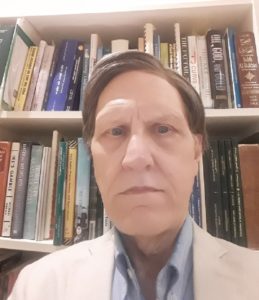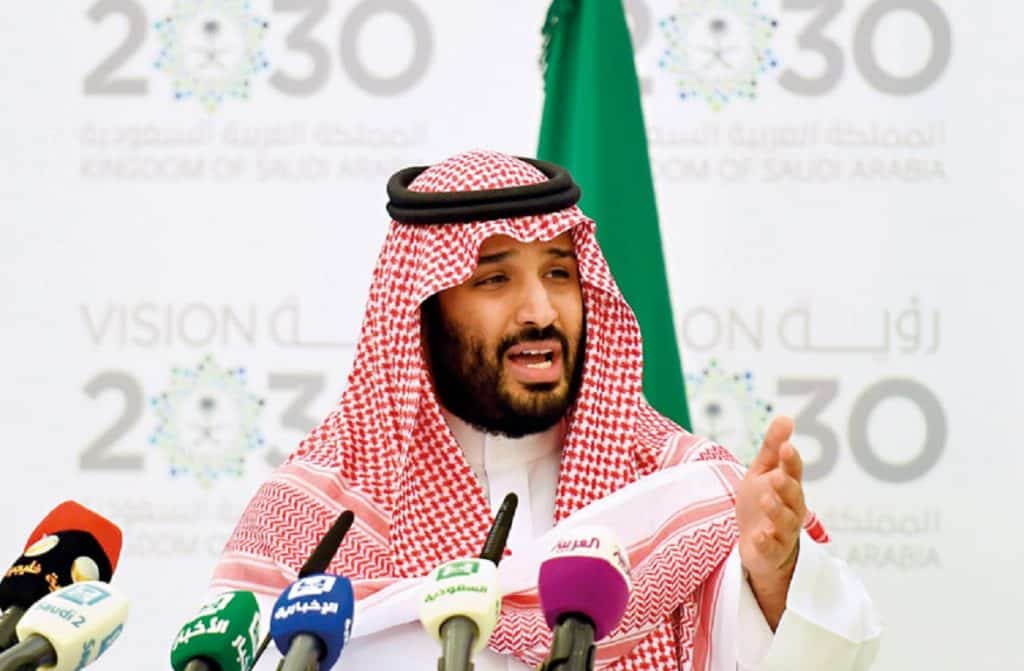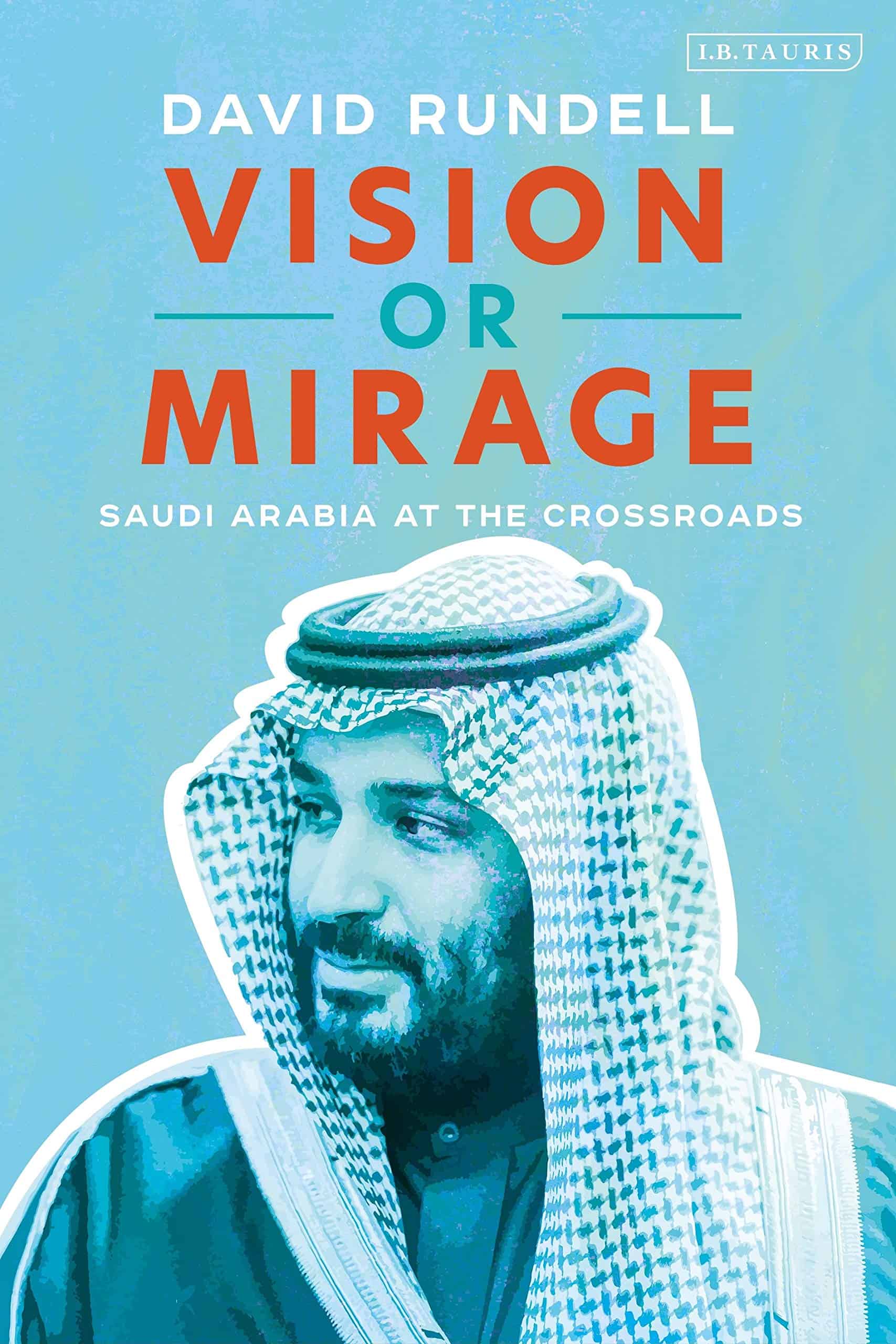World Geostrategic Insights interview with David H. Rundell on Saudi Arabia’s reform and modernization process, changes in Saudi-US relationship, Riyadh’s foreign policy goals, and closer ties with China and Russia.

David H. Rundell is a former Chief of Mission at the American Embassy in Riyadh, Saudi Arabia and the author of “Vision or Mirage, Saudi Arabia at the Crossroads”.
1 – You are one of America’s leading experts on Saudi Arabia. In your book ‘Vision or Mirage: Saudi Arabia at the Crossroads’, you provide a superlative overview of the political, religious, economic, cultural and social landscape of the Kingdom, also explaining its particular internal dynamics and values that make Saudi Arabia so alien to Western systems.
Under the impetus of Crown Prince Mohammad bin Salman, Saudi Arabia is experiencing remarkable changes, with attempts to implement major economic and social reforms and a more tolerant Islam. What do you think is most likely to happen: will MBS’s modernization vision have a lasting impact in the country or will it be a mirage? What will Saudi Arabia look like in the future?
DAVID RUNDELL: In 2015, Saudi Arabia was a steam ship heading towards an iceberg. The economy was totally dependent on oil and the government’s budget was deep in the red, youth unemployment was high and growing. Religious vigilantes, known as The Volunteers, roamed the streets enforcing their view of morality. Women were largely excluded from the job market. Today nearly all of this has changed.
When Crown Prince Mohammad bin Salman announced Vision 2030 in 2017, it was by far the most ambitious development plan the kingdom had ever produced. The plan was drafted by literally hundreds of the world’s best and most expensive management consultants, but MBS made the final decisions. When I wrote my book, it was not at all clear if this was a new vision or a misleading mirage. Now it can be seen that it was not a mirage.
Difficult decisions that had been put off for years have been taken. Taxes have been imposed on the Saudi population for the first time while subsidies for gasoline and electricity have been cut. Aggressive efforts to diversify the economy have begun to create jobs outside the petroleum and petrochemical sectors. The religious police have largely disappeared and those remaining are far more polite.
Most people know that women can now drive but are unaware that there are now more women in Saudi universities than men. In 2017 the labor force participation rate for women was 20 percent. The goal was to raise it to 30 percent by 2030. As of last year it had already reached 32 percent thanks to aggressive affirmative hiring practices for women as well as new government child care and transportation programs for low income women. Thirty percent is still low by Western standards, but it is a 50 percent increase for Saudi women in just five years.
Saudi Arabia has changed politically as well. The potentially destabilizing transition to the next generation of princes has been made successfully. At the same time the consensus driven, power sharing arrangement among the sons of King Ibn Saud has been dismantled. King Salman engineered the rise to power of his son Mohammad who has rapidly concentrated power and eliminated the old independent princely fiefdoms. In the short term, this was necessary to implement the significant reforms in the face of strong opposition from some religious scholars, senior princes and leading businessmen. Some still argue that the Crown Prince is trampling long established cultural values. While others protest that he is not trampling fast enough, most Saudis believe he is leading the country in the right direction, wish him success and are willing to give him more time to achieve his vision.
To summarize, Mohammad bin Salman has already achieved a great deal and I expect he will achieve more. He is clearly heading in the right direction socially and economically. He is doing this on his own volition not because we asked him to. When we compare this to what is happening in Afghanistan where the economy and women’s rights are collapsing we should in fact be encouraging the Saudis and supporting their reform efforts. That said, Vision 2030 is very ambitious. MBS is not likely to fulfill all its goals in the next eight years and he probably never expects to.
2 – For a long time, the relationship between the United States and Saudi Arabia was mainly about oil and security. The US needed oil from Saudi Arabia, while the Saudi leadership was looking for US political and military security guarantees against Iran. In recent years, for various reasons, including MBS’s rise to power, the ‘oil for security’ paradigm seemed to have lost importance, as did the relationship between the two countries.
Now, with the war in Ukraine and its effect on global energy supply, we see a shift in US policy towards Saudi Arabia. Last July, Joe Biden visited Saudi Arabia for the first time as US president. Biden’s trip seems to have produced few tangible results, but it raised questions about the future of US-Saudi relations. What is your opinion on the results of Biden’s visit? Was it a success or a failure in restoring ties? Can we consider it as a reset in US-Saudi relations? How do you think the relationship between the two countries will develop?
DAVID RUNDELL: The Saudi American relationship has always been thicker than oil. The two states have worked together to contain the Soviet Union, resolve the Arab Israeli conflict and defeat Al-Qaeda. Nevertheless, over the past 50 years there have been many periods of great tension in the relationship. It has always survived because of significant shared interests. For example, after the 1973 Arab Oil Embargo, Secretary of State Henry Kissinger successfully sought to tie the Saudi economy closer to the United States in order to avoid future problems. The crisis actually strengthened the relationship. The September 11 attacks certainly sent the relationship into a nose dive even when it became clear that the Saudi Government had not been involved. Yet the relationship recovered slowly in large part due to counterterrorism cooperation.
One should remember that the Saudis have also had reasons to be displeased with Washington. They repeatedly opposed the American invasion of Iraq in 2003 and then argued in 2013 that a premature withdrawal would only leave a vacuum to be filled by ISIS and Iran. I would say they were right on both occasions. In 2011 the two nations differed over civil unrest in Bahrain, where Riyadh focused on clandestine Iranian involvement and Washington on human rights violations. The following year they differed again over Egypt’s Arab Spring protests where Washington cheered a democratic election and Riyadh feared the rise of Muslim Brotherhood extremists. Thus on many occasions cracks have appeared in the relationships. They have been repaired not through public opinion or bureaucratic institutions, but through high level personal engagement by presidents and kings
Today this has changed, most likely forever. The assassination of Jamal Khashoggi outraged the American media, public and Congress. Arms sales to Saudi Arabia were curtailed. Business leaders hesitated to visit the kingdom. Press coverage of positive reforms in Saudi Arabia dried up. Many Americans mistakenly began to believe that Saudi Arabia’s oil no longer mattered. The US military began to shift its attention to Asia.
At the same time Presidential candidate Biden publicly insulted the Saudis calling them a “parish state”. Although that had never happened before, the Saudis understood the difference between campaign rhetoric and actual policy. They were surprised when President Biden continued his attack on the kingdom’s de facto ruler Mohammad bin Salman once he was elected. They eventually concluded that there was little they could do to change the President’s attitude and that in the end perhaps it did not really matter anyway.
The Saudi view of the world is changing and changing fast. The unipolar decades that followed the collapse of the Soviet Union are over. America no longer has unrivaled military power and unequaled economic might. A new multipolar world is evolving offering Saudi Arabia a choice of new allies. China has become Saudi Arabia’s largest customer and trade partner. Beijing now has more influence in Tehran than Washington. Meanwhile Russia has become an invaluable ally in Saudi efforts to control oil markets. The likelihood that Saudi Arabia would ever break with China or Russia to please Washington has fallen sharply. For decades, Saudi Arabia and the United States had a Roman Catholic marriage, one that could not end in divorce. That may still be true, but the relationship has evolved in to a Muslim marriage, one that allows more than one wife.
3 – Despite increasing pressure from the US and Europe, Saudi Arabia is refraining from criticizing Russia and is unlikely to drastically increase oil production or align with the Western consensus on Russia’s isolation. Riyadh is also unlikely to alter its willingness to deepen ties with China. So, notwithstanding the Ukraine crisis, will Saudi Arabia remain fundamentally committed to a multi-vector foreign policy, in which it seeks to balance traditional partnerships with the US and Europe with closer ties to non-Western powers such as China and Russia? In general, what are the current guiding principles of Saudi foreign policy, also with regard to Iran?
DAVID RUNDELL: Let me make several points here. First the energy shortage in Europe is largely self-inflicted. It was childish to believe that the EU could impose economic sanctions on Russia, but Russia would not think to do the same to Europe. Russia is still producing a great deal of oil and gas. It is restrictions on shipping, banking and insurance that have made its distribution difficult. Second, it was always naive to expect that a transition away from inexpensive hydrocarbon fuel to expensive and sometimes unreliable renewables was going to be cost free.
Third, the Russians have not been hurt by the sanctions nearly as much as some people predicted because they are largely self-sufficient for food, energy and weapons. These are all things most other nations must import. The Russians have in fact seen the value of the rubble increase and their trade surplus grow. They have very little economic reason to change their policies on energy or the Ukraine.
Finally, it is a gas shortage, not an oil shortage, that now threatens Europe and Saudi Arabia is not a major gas exporter. The Saudis believe global oil markets are adequately supplied at the moment considering the economic slowdown in China and the likelihood of a new recession in the West. They told President Biden there was no need to increase production and it would appear that they were correct . With minimal new Saudi production, oil prices have fallen 20 percent since Biden’s visit.
So to answer your question directly, the goals of Saudi foreign policy are to protect the security and economic interests of the kingdom. This requires good relations with Russia and China. The Saudis have never criticized China’s policies towards the Weighers or Hong Kong and I doubt they ever will. Likewise, I do not expect the Saudis to take sides on the Ukraine issue or to pressure the Russians to change their energy policy.
As for Iran, sanctions have never stopped a country from acquiring nuclear weapons if it was determined to do so. Think of India, Pakistan and North Korea. It would appear that Iran is determined to spend a great deal of money and endure a great deal of economic hardship in order to continue its nuclear programs. Saudi Arabia’s Crown Prince has stated that if Iran obtains a nuclear weapon he will feel compelled to do the same. I would not be surprised if Egypt and Turkey did likewise. So I am worried about Iran acquiring a nuclear weapon and starting a nuclear arms race in the Middle East.
David H. Rundell – Former Chief of Mission at the American Embassy in Riyadh, Saudi Arabia and author of “Vision or Mirage, Saudi Arabia at the Crossroads”.








